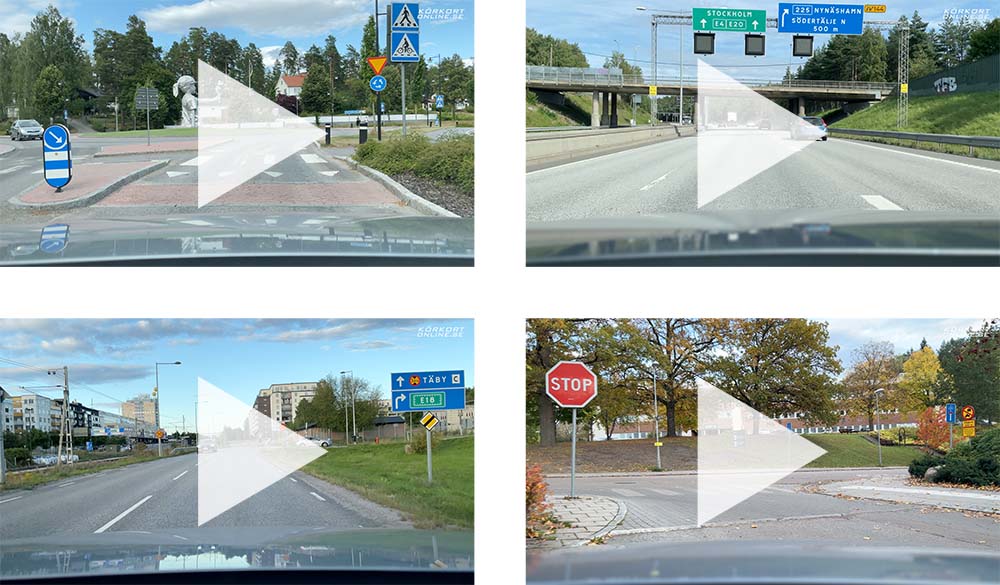Fuels – different fuel types (driving licence theory)
Petrol and diesel

This car must be refuelled with petrol. E10 is the standard petrol in Sweden (contains up to 10% ethanol for reduced climate impact).
Both petrol and diesel are fossil fuels that contribute to increased greenhouse effect and climate change.
A diesel engine has lower fuel consumption compared to a petrol engine. The problem with diesel is that the exhaust gases are more dangerous to health than those from petrol.
At petrol stations in Sweden, all petrol and diesel are environmental class 1 (contains less harmful substances).
Electricity
An electric car does not emit any harmful exhaust gases when driving. In Sweden, a large part of the electricity comes from fossil-free energy sources.
However, the electric car’s battery requires large amounts of metals that come from mines around the world. This mining causes emissions and working conditions can be poor.
Hybrid

In this plug-in hybrid, you can currently drive 68 km on electricity and 650 km on petrol.
Hybrid cars have two different engines. Most commonly, electricity is combined with petrol. The electric motor can be used for short distances in town. When longer range and more power are needed, the petrol engine is switched on automatically. A plug-in hybrid means that you can charge with a charging cable.
Emission classes
All new cars sold within the EU must meet certain emission requirements (carbon monoxide, hydrocarbons, nitrogen oxides and harmful particles). Which Euro class (e.g. Euro 5, Euro 6) the car belongs to is stated in the registration certificate. A higher number means lower emissions.
As a complement to the Euro classification, there are also the emission classes: Electric (“El”), Hybrid (“Hybrid”) and Plug-in hybrid (“Laddhybrid”).

Environmental zones
Municipalities can introduce environmental zones where only certain types of vehicles are permitted. The aim is to improve air quality.
| Class 1 |
 Only affects heavy vehicles. For example, newer lorries are allowed, but older models are prohibited. A regular car can drive here regardless of fuel. |
| Class 2 |
 Petrol cars must comply with Euro 5 or Euro 6. Diesel cars must meet Euro 6. |
| Class 3 |
 Only electric vehicles, fuel cell vehicles and gas vehicles are allowed to drive here. Petrol and diesel are prohibited. Plug-in hybrids are also prohibited. |
Latest forum posts
- << Eco-driving
- Fuels ↑↑
- Court cases >>



